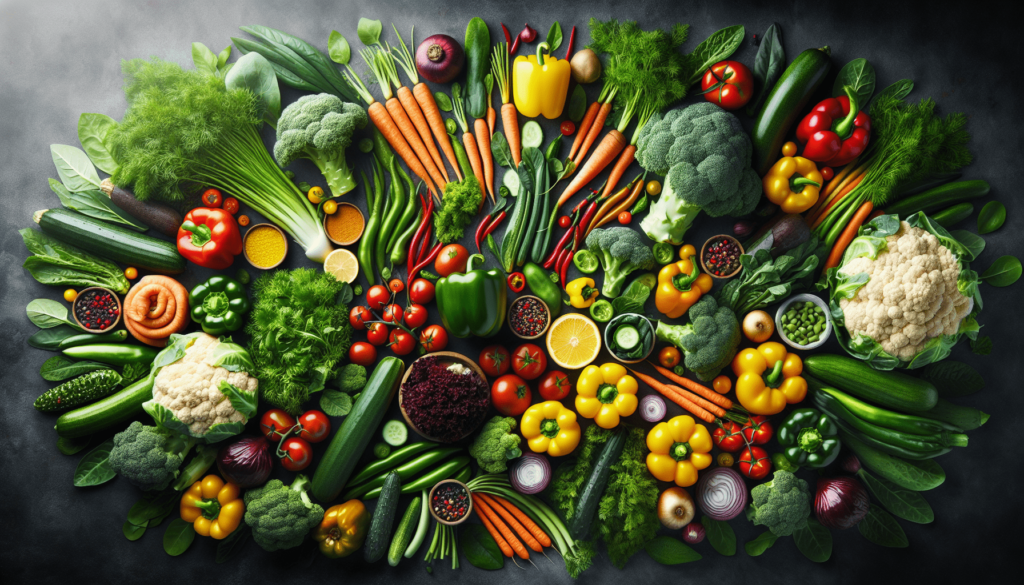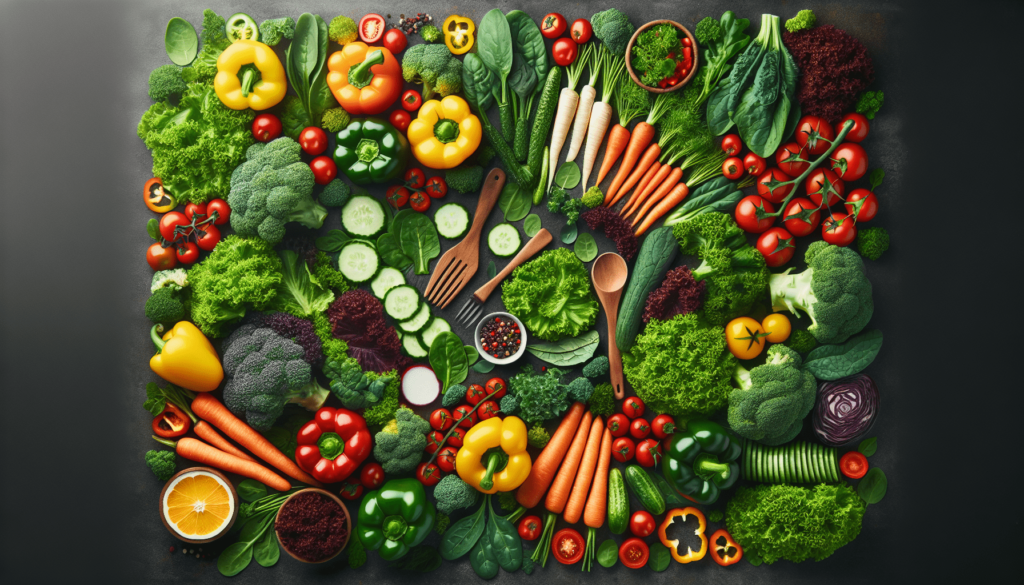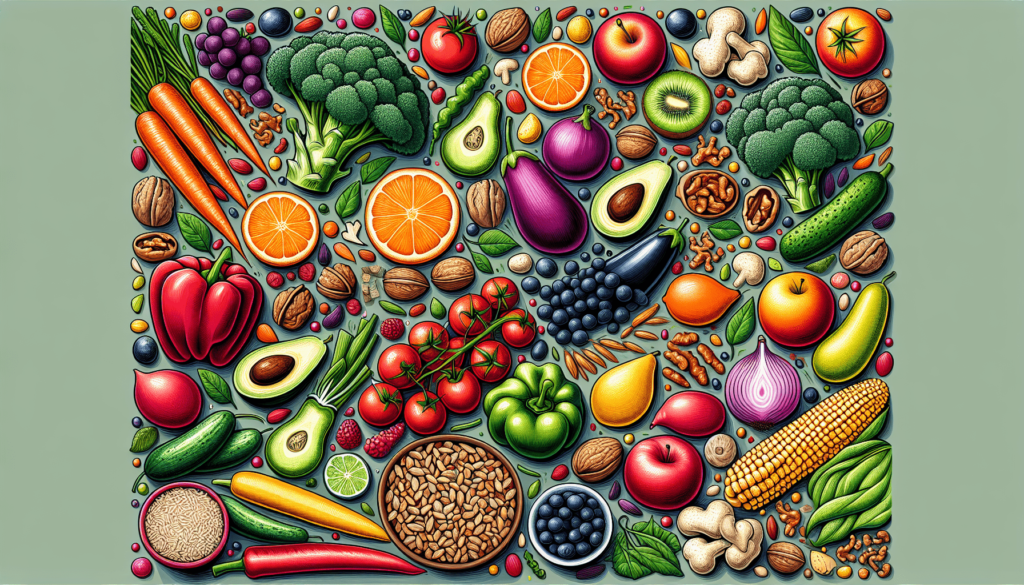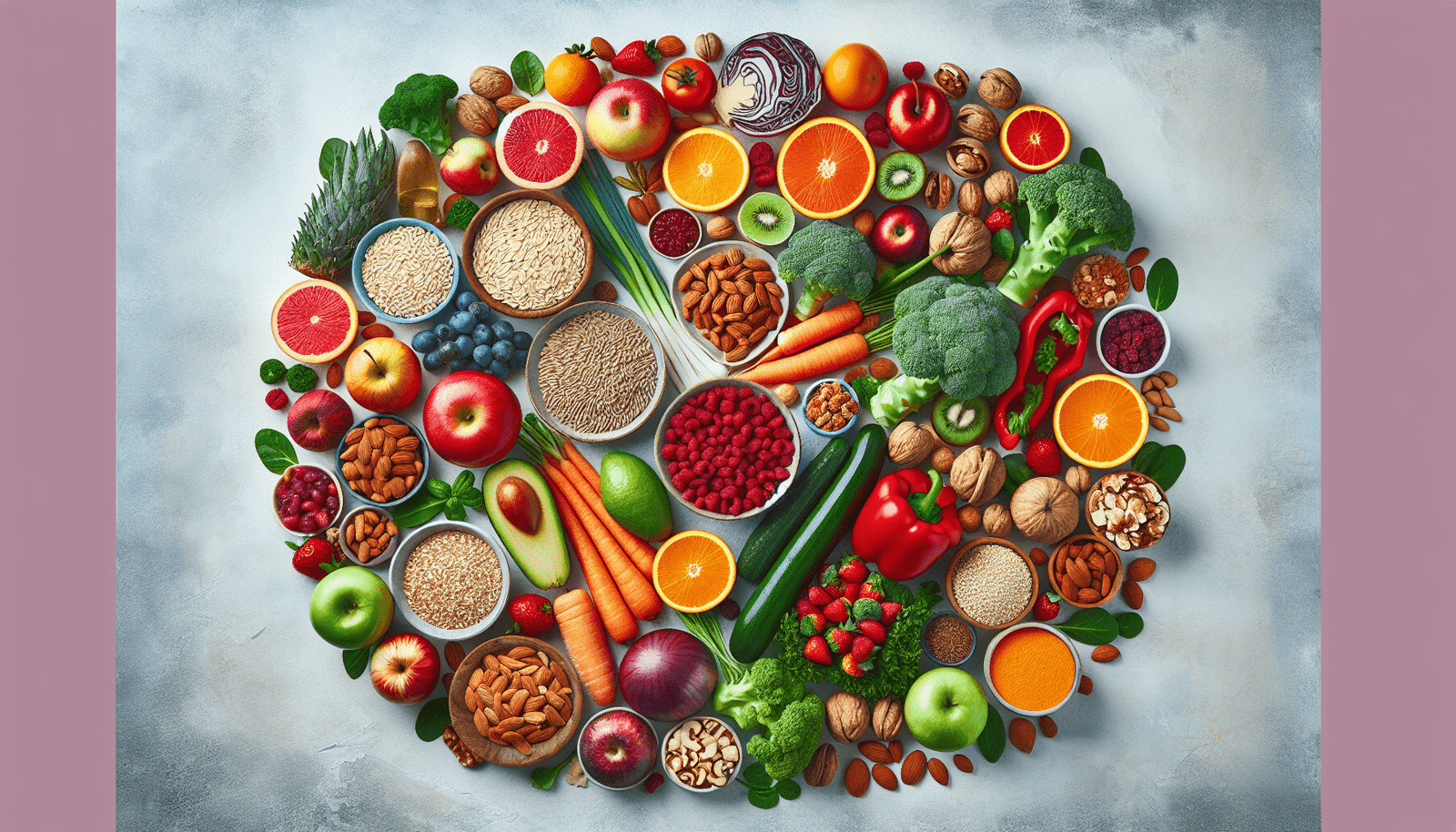Have you ever wondered about the different types of vegetarianism and what they mean? In this article, we will explore various types of vegetarian diets, from lacto-vegetarian to flexitarian, and help you understand what each one entails. Let’s dive into the world of vegetarianism together!
Types of Vegetarianism
When it comes to vegetarianism, there are different variations that people follow based on their dietary preferences and ethical beliefs. Each type of vegetarian diet has its own set of guidelines and restrictions.
Lacto-Vegetarian
Lacto-vegetarians exclude meat, fish, poultry, and eggs from their diets, but they do consume dairy products. This vegetarian diet is popular among individuals who still want to enjoy dairy while maintaining a plant-based lifestyle.
Ovo-Vegetarian
Ovo-vegetarians avoid meat, fish, poultry, and dairy, but include eggs in their diet. Eggs are a good source of protein and essential nutrients, making this diet a popular choice for those looking to incorporate animal products into their meals.
Lacto-Ovo Vegetarian
Lacto-ovo vegetarians follow a diet that excludes meat, fish, and poultry, but includes both dairy and eggs. This is one of the most common types of vegetarian diets and provides a good balance of essential nutrients from both animal and plant-based sources.
Vegan
Vegans follow a strict plant-based diet that excludes all animal products, including meat, fish, poultry, dairy, eggs, and even honey. This diet is often chosen for ethical reasons, as vegans believe in avoiding all forms of animal exploitation.
Pescatarian
Pescatarians include seafood in their diet while abstaining from meat and poultry. This diet is a good option for those who want to reduce their meat consumption while still getting essential nutrients from fish and seafood.
Flexitarian
Flexitarians primarily follow a plant-based diet but occasionally eat meat or fish in moderation. This flexible approach allows individuals to enjoy a variety of foods while still focusing on plant-based options for most meals.
Health Benefits of a Vegetarian Diet
Following a vegetarian diet can offer numerous health benefits, including lower risk of chronic diseases, weight management, and improved overall well-being. Let’s explore some of the key health advantages of adopting a vegetarian lifestyle.
Lower Risk of Chronic Diseases
Vegetarian diets have been linked to a lower risk of chronic diseases such as heart disease, diabetes, and certain types of cancer. By focusing on plant-based foods rich in vitamins, minerals, and antioxidants, individuals can reduce inflammation and support their overall health.
Weight Management
Vegetarian diets are often lower in calories and saturated fats compared to omnivorous diets, making them a good choice for weight management. By consuming more fruits, vegetables, whole grains, and plant-based proteins, individuals can maintain a healthy weight and reduce the risk of obesity.
Improved Digestion
Plant-based foods are rich in fiber, which is essential for maintaining healthy digestion and preventing constipation. By including a variety of fruits, vegetables, whole grains, and legumes in your diet, you can support a healthy gut and promote regular bowel movements.
Enhanced Nutrient Intake
Vegetarian diets are rich in essential nutrients such as vitamins, minerals, and antioxidants that are important for overall health and well-being. By incorporating a variety of plant-based foods into your meals, you can ensure that you are getting a wide range of nutrients to support your body’s functions.

Tips for Transitioning to a Vegetarian Diet
If you are considering transitioning to a vegetarian diet, it’s important to do so in a gradual and sustainable manner. Here are some tips to help you make the switch successfully and enjoy the benefits of a plant-based lifestyle.
Start Slow
Begin by incorporating more plant-based foods into your meals and gradually reducing your intake of animal products. This gradual approach can help your taste buds adjust to new flavors and textures while ensuring that you are meeting your nutritional needs.
Experiment with New Foods
Explore different fruits, vegetables, grains, legumes, nuts, and seeds to discover new flavors and recipes. Trying out a variety of plant-based foods can help you find options that you enjoy and make the transition to a vegetarian diet more enjoyable and sustainable.
Seek Support
Connect with other vegetarians or vegans for advice, recipes, and support as you make the switch to a plant-based diet. Online forums, social media groups, and local vegetarian meetups can provide valuable resources and encouragement on your journey.
Consult a Registered Dietitian
If you have specific dietary concerns or health conditions, consider consulting a registered dietitian or nutritionist for personalized guidance on transitioning to a vegetarian diet. A professional can help you create a balanced meal plan that meets your nutritional needs and supports your overall health goals.
Common Misconceptions About Vegetarianism
There are several misconceptions surrounding vegetarianism that may deter individuals from exploring plant-based diets. Let’s debunk some common myths and set the record straight on vegetarianism.
Myth: Vegetarian Diets Lack Protein
Contrary to popular belief, vegetarian diets can provide an adequate amount of protein through plant-based sources such as beans, lentils, tofu, tempeh, quinoa, and nuts. By including a variety of protein-rich foods in your meals, you can easily meet your protein needs as a vegetarian.
Myth: Vegetarian Diets are Boring
Vegetarian diets offer a wide range of flavorful and satisfying options, from vibrant salads and hearty soups to delicious stir-fries and plant-based burgers. By experimenting with different ingredients and cuisines, you can create diverse and delicious meals that are anything but boring.
Myth: Vegetarian Diets are Expensive
While certain vegetarian specialty products and ingredients can be pricey, a plant-based diet can actually be cost-effective and budget-friendly. Staples such as beans, rice, vegetables, and fruits are affordable and versatile, making vegetarian meals accessible to individuals on any budget.
Myth: Vegetarian Diets Lack Nutrients
By following a well-balanced vegetarian diet that includes a variety of fruits, vegetables, whole grains, legumes, nuts, and seeds, you can easily meet your nutrient needs. Plant-based foods are rich in essential vitamins, minerals, and antioxidants that support overall health and well-being.

Environmental Benefits of Vegetarianism
In addition to personal health advantages, vegetarian diets also offer environmental benefits by reducing greenhouse gas emissions, conserving water resources, and preserving biodiversity. Let’s explore how plant-based diets can contribute to a more sustainable and eco-friendly world.
Reduced Greenhouse Gas Emissions
Livestock farming is a major contributor to greenhouse gas emissions, including methane and nitrous oxide, which are powerful climate-warming gases. By reducing meat consumption and transitioning to a plant-based diet, individuals can lower their carbon footprint and help combat climate change.
Water Conservation
Livestock farming requires a significant amount of water for animal feed, drinking, and sanitation, leading to water scarcity in certain regions. Plant-based diets are more water-efficient, as they require less water to produce fruits, vegetables, grains, and legumes compared to livestock products.
Preservation of Biodiversity
Livestock production contributes to deforestation, habitat destruction, and loss of biodiversity, particularly in regions where forests are cleared for grazing land and feed crop cultivation. By choosing plant-based foods over animal products, individuals can help preserve ecosystems and protect wildlife habitats.
Sustainable Agriculture
Plant-based agriculture is more sustainable and environmentally friendly than livestock farming, as it reduces land degradation, soil erosion, and chemical runoff from agricultural activities. By supporting sustainable farming practices and choosing plant-based foods, individuals can promote a healthier planet for future generations.
Conclusion
In conclusion, vegetarianism encompasses a variety of dietary choices, each with its own set of guidelines and benefits. Whether you choose to follow a strict vegan diet or opt for a more flexible flexitarian approach, embracing plant-based foods can offer numerous health advantages and contribute to a more sustainable world. By exploring different types of vegetarianism and understanding what they mean, you can make informed decisions about your dietary preferences and lifestyle choices. So, are you ready to embark on a vegetarian journey and discover the many benefits of plant-based eating? Your taste buds and the planet will thank you!


